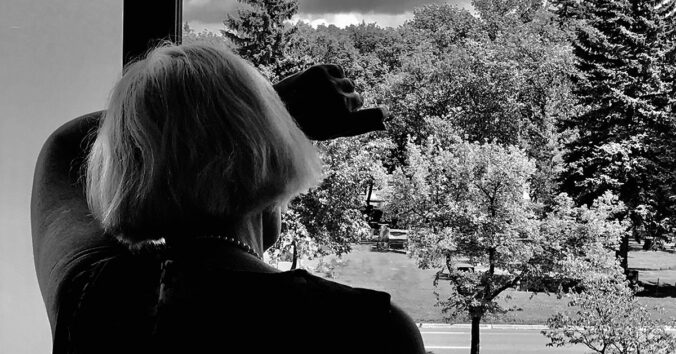The good news is that there are things you can do to both minimize your risk of COVID and the consequences from social isolation.
Here are five ways to optimize your mental and physical health during another pandemic winter.
1. Embrace virtual opportunities
There’s no denying that the best interactions are in-person ones. But if you’re still waiting on younger members of the family to get vaccinated or for indoor group gatherings to feel safer, the next best option is a video connection.
Keep up with video calls to friends and family. You can also sign up for a virtual writing workshop, art class or online choir.
2. Get outside as much as you can
For some people, especially those in warm-weather climates, winter doesn’t put a damper on outdoor time. Restaurant patios remain open, and parkas stay tucked away in the closet.
For others, though, the season’s darker days and colder temps make getting fresh air more difficult. “But getting outdoors regularly, wherever you are, is important,” both for light exposure and for physical activity.
Of course, heed caution if there’s snow and sleet on the ground, which could increase your risk of falling. But if it’s safe, bundle up and make it a point to meet a friend for a walk. You can also check with a community center or parks department for a list of outdoor activities.
Worried about COVID? A vaccine and booster will significantly decrease your risk of getting infected and sick, studies show. Plus, the CDC says you’re less likely to be exposed to the coronavirus during outdoor activities. And you can always wear a mask and keep 6 feet from others to keep your risk to a minimum.
3. Consider a pod
Lots of people weathered the worst of the pandemic with pods, or small groups of people who quarantined together or exercised similar levels of precaution. This concept may be worth revisiting, especially if you have a close group of friends “that you are comfortable being with who are also being careful.”
Just keep your mask handy for any indoor group gatherings, even if everyone is fully vaccinated. The CDC recommends wearing a mask in public indoor settings if you are in an area of substantial or high transmission, which currently is most of the country.
4. Keep a routine
Maintaining a sense of structure is important, “because when you’re isolated, you may be kind of drifting and you’re not regular about things.” In the winter, especially, keep to a sleep schedule, no matter how tempting it may be to doze off once the sun goes down.
Older adults should aim for seven to nine hours of sleep a night, the National Institute on Aging (NIA) advises. Anything above or below that amount can wreak havoc on your health; bad sleep habits can even cause problems in memory and thinking skills.
5. Talk with a health care provider
If you feel isolated or notice loneliness setting in, let your health care provider know. Describe symptoms you are experiencing, and outline any major changes or stresses in your life, NIA advises. Being open and honest about your health and habits will help your physician decide the best treatment.
NIA has tips on how patients can prepare for a medical appointment and discuss sensitive topics.
